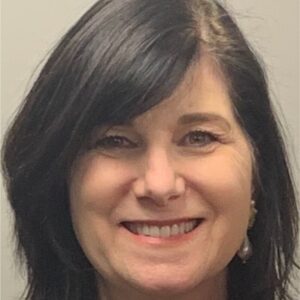OPTIMA Award: My trip to relearn memory care
After two planes, two subway lines, a train and a taxi, I’d finally arrived at The Atrium at Drum Hill, a Benchmark Senior Living memory care community in upstate Massachusetts. My two-day visit was part of Long-Term Living’s coverage of the 2014 OPTIMA Award winner, where I would immerse myself in a special program that used all-day activities to improve the lives of those with dementia.
Something seemed different from the moment I walked in the door.
No one was slumped in front of the television watching "Wheel of Fortune." Instead, several residents were immersed in a video about the Hawaiian Islands, this week's resident-chosen learning topic.
One of the first people to greet me was Bob, who I first thought was a volunteer. He shook my hand, politely called me “ma’am,” and welcomed me to his home.
Soon, freshly laundered table linens arrived in a basket, so Virginia and Tony, both residents, got busy folding them for the day’s meals. The rolled hand towels are warmed and used at meal times as a soothing sensory experience, explained Margaret Kargbo, one Drum Hill’s care associates. The gently repetitive task of folding and rolling the linens helps residents concentrate and maintain dexterity in their fingers, but it also helps them stay connected by contributing to a community purpose.
A small group of residents gathered around a table to listen to a care associate talking about pets. A box on the table contained pictures, a dog collar, toy stuffed animals and other pet-related items used as discussion cues. The residents considered questions such as “What is the most unusual pet you can think of?” and “Would a lion make a good house pet?” Like many of the program’s activities, this one exercised a brain process that people with dementia tend to lose early—the ability to sort things into categories.
Later, Bob graciously allowed me to see his room. Small computer components and electronic gadgets were strewn across his desk. Next to the window stood a black lacquered chair emblazoned with the Massachusetts Institute of Technology university logo. Bob told me he wasn't sure if he went to school there, but said his father worked there.
Technology helps Drum Hill's residents live in the now instead of lingering in the past. If a resident expresses interest in tigers during a program about animals, an associate can lead him or her to the computer stations in the main room and locate an online video showing a live tiger roaming the grasslands in Africa. Associates even helped one resident learn how to Skype with her sister, who lives in an assisted living community in Canada.
At lunch time, I asked to eat with the residents. Bob immediately volunteered to be my escort, and two other residents joined our family-style table. Servers brought two trays containing the meal examples—lasagna, zucchini and mozzarella sticks on one tray; corned beef, potatoes and carrots on the other—and asked each resident to choose.
We spent an hour in conversation as my tablemates told me a bit about themselves, prognosticated about the Red Sox and asked about where I live. Occasionally a tiny reminder of their memory impairments would surface—one man told the same joke three times before dessert—almost like a conversational loop resetting itself.
So far, this place was unlike any dementia-related care community I’d seen. Wait for it, I thought to myself. Sooner or later I figured I'd see the predictable outbursts, the agitated behavior, the angry confusion of sundowning—all the things we’ve read about and written about as challenges in memory care. But none of it ever happened.
Other things contradicted what I thought I’d see here:
It isn't quiet. Several residents were dancing and singing to a music program, while others explored the instruments available for them to touch and play at the music station. Some of those who enjoyed musical lives in their earlier years occasionally give concerts for their housemates. Everyone claps, no matter what.
Most of the resident rooms are empty during the day. There's always something for them to do, see, touch and discuss. Some of them like to spend time outside in the secure courtyard, which they can access at will. Here, the rooms seem to be used only when residents want to sleep.
A care associate works with the same four to six residents all day, every day. Associates are intrinsically involved in every part of a resident’s day, from dressing and bathing to nutrition and exercise. When an associate changes shifts or is on vacation, the residents want to know why "their" friend isn't there. Fortunately, it doesn't happen very often, because the CNA turnover at Drum Hill is well below the national average—many of them have been there for more than 12 years.
Aha—I finally saw a resident standing alone, isolated from the others. Oh wait; he was just shuffling through the items at the sports-based activity display. He settled into a nearby chair to read the Sports Illustrated he'd chosen. As he read, he sang along to the song the other residents were singing during their musical activity. Today, he knew every word of the lyrics.
After my visit to Drum Hill, I realized that my purple suitcase wasn’t the only baggage I’d brought on this trip. I had assumed this place would be like so many others where those with memory impairments are separated into special wings/units/centers and often segregated further into groups by ability level, adding to their sense of isolation. In this place, all residents are included in everything, all day. Here, seniors are LIVING.

Pamela Tabar was editor-in-chief of I Advance Senior Care from 2013-2018. She has worked as a writer and editor for healthcare business media since 1998, including as News Editor of Healthcare Informatics. She has a master’s degree in journalism from Kent State University and a master’s degree in English from the University of York, England.
Related Articles
Topics: Alzheimer's/Dementia , Executive Leadership











